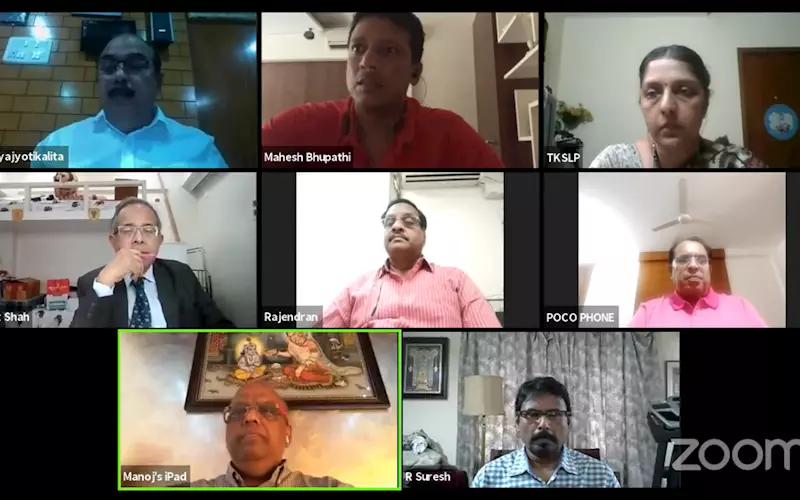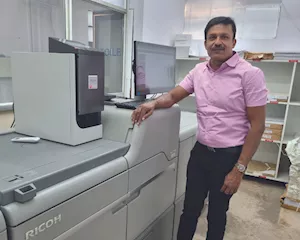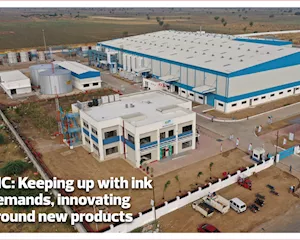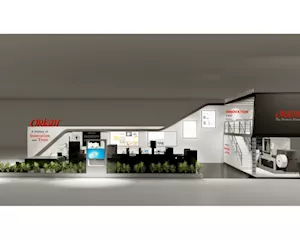AIFMP webinar demystifies the roadmap to Advantage India
A webinar conducted by the export promotion committee of the All India Federation of Master Printers (AIFMP) on 9 May 2020 titled Advantage India was a historic moment, according to AIFMP president Dibyajyoti Kalita.
22 May 2020 | By Aultrin Vijay
The one-and-a-half-hour long webinar saw online participation of printers pan India, which according to Kalita was a first in the history of AIFMP. "In this lockdown period the entire world is disturbed. This is a crucial and unpredictable time," he said while starting off the online meeting.
"It is well-known that printers are by nature not always adopting digital technology. But, India is in a key position to take a lead in world economy due to decentralisation," said Kalita. "The supply chain has to be relooked. This online technology is helping us to connect with printers – big and small – without having to travel, and the organisers have identified notable speakers for the webinar."
Briefing about the webinar, Manoj Mehta, chairman, export promotion, AIFMP, insisted printers to remain vigilant during the lockdown, so as to focus on unprecedented tasks post lockdown. He also described how one of the tax benefits announced by the prime minister could be a great opportunity to the industry.
Lessons on leadership
Retired tennis player Mahesh Bhupathi shared some of his experiences and expertise of effective leadership. He emphasised the importance of sharing the strengths of team members.
Recalling his successful days as a tennis player and his experience in establishing India’s first beauty platform for celebrities, he said, "Leadership is more about sharing strengths and complementing each other."
"The business environment has more challenges in terms of empowerment of a team, making them feel part of the team, and crisis management. It's about taking responsibility, doing things, and being open to learning from mistakes," he added.
Describing the difficulty in establishing and running a business in India, Bhupathi said that there's still a long way to go in terms of hassles in licensing and permissions.
Shifts in demand
According to Ajit Shah, faculty and consultant for international business, AIFMP, there has been a shift in nature of demand from printing to packaging in recent years.
Shah said that supply would require significant improvement in courier and eCommerce. "Food packaging and delivery is one significant sector to watch out for."
During the webinar, Shah said that achieving ‘Advantage India’ is a possibility. "New opportunities will emerge. The realisation of these opportunities would require improvement in quality of products and delivery, augmented by government reforms in finance and banking."
He also pointed out the global trend in the printing industry. "Almost 80% of the market share in printing is held by China. The Covid effect saw Japanese industries withdrawing from China. The competitive landscapes are changing with the back-to-home-country effect and shift in base to other business-friendly countries such as Philippines, Thailand, Malaysia, Indonesia and Sri Lanka."
“We are not a poor country. We are a poorly managed country,” he remarked. "Advantage India can happen if we improve our skills to meet the new global dynamics aided by government reforms."
Highlighting the successful model of the automotive industry in India, Shah proposed a model where a few large companies could be the face of the printing industry, supported by clusters of small and micro enterprises.
“Social security should be the responsibility of the government and not the business," said Shah, adding that this would be an accelerator of growth for the Indian industry.
Post crisis government support for print exports
Meanwhile, Satish Malhotra, chairman - government relations, AIFMP and managing partner of Swan Press, gave a brief outline of the efforts made by the government during the ongoing crisis.
He listed out initiatives such as Merchandise Exports from India Scheme (MEIS) for export licenses, Service Exports from India Scheme (SEIS), interest subvention to neutralise high interest rates, duty exemption and remission, advance authorisation, Export Promotion Capital Goods (EPCG), and other industry specific schemes that are under consideration.
"Embassies trying to become enablers for business is a significant shift that is envisaged," Malhotra said. "We need to become a worthy and sustainable producer. The way forward for the industry to realise this would be job standardisation, specialisation in a niche area, and quality of delivery."
He also noted that issues of compliance, bureaucratic hassles, easing of labour laws are some of the concerns that the government should address. "The golden rule would be to 'export our goods and not our taxes'," he added.
He also emphasised the importance of stable currency rate to mitigate losses due to market fluctuations.
Huge opportunity for exports
On a positive note, R Suresh, CEO at ST Reddiar & Sons, said that there is a huge opportunity for exports from India, considering the 2,00,000 small and medium enterprises in the printing industry. He was sharing his views on the exports to Asian countries post the Covid-19 crisis.
His optimism came from the possibility of joint ventures with other Asian countries, embassies becoming business enablers, and the large population of our country.
Suresh pointed out that the most critical deterrent to the industry's success is our easy going attitude and lack of discipline. He also emphasised the need for constituting an apex body with focus on skill development, shift to packaging, cluster management and liaising with embassies and global forums to facilitate the progress of the printing industry.
TKS Lakshmi Priya, professor of printing technology at Avinashilingam University, moderated the discussion.














 See All
See All